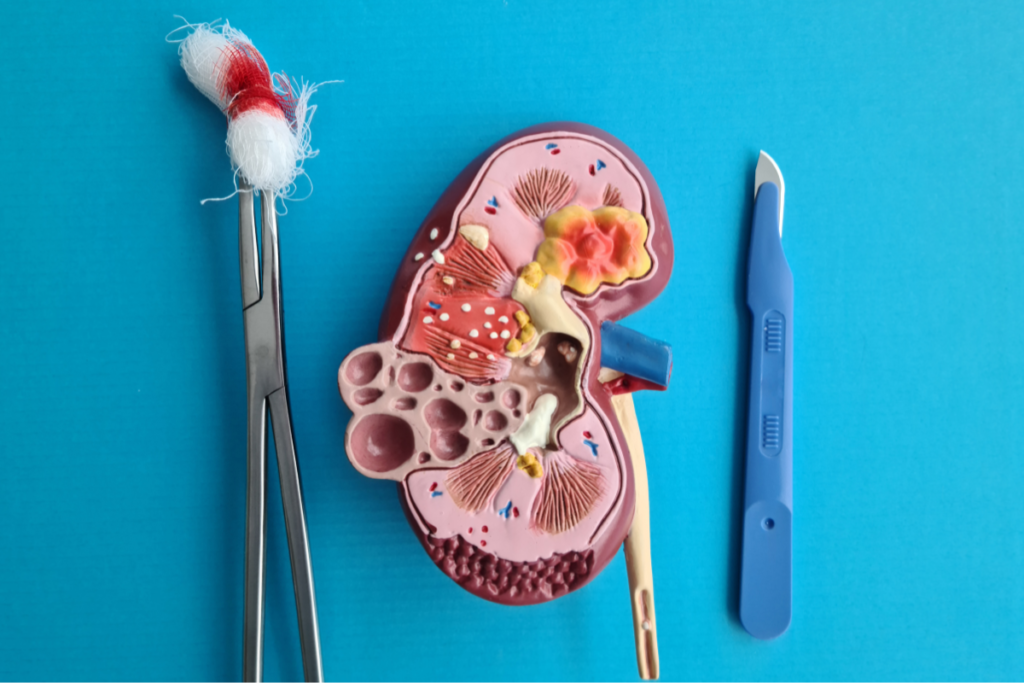For patients with Chronic Kidney Disease (CKD), mainly when their kidneys are unable to function normally, kidney transplantation can be the best option. A kidney transplant can restore normal kidney function and greatly improve quality of life when the kidneys lose their capacity to eliminate waste and maintain fluid balance. However, there are a lot of myths and misinformation about kidney transplantation. This article will discuss when kidney transplantation is advised for those with chronic kidney disease.
Why Kidney Transplantation?
Kidney transplantation is often considered when CKD reaches end-stage renal disease (ESRD), where the kidneys are functioning at less than 10-15% of their normal capacity. In such cases, kidney function is no longer sufficient to filter out waste and maintain the body’s balance of fluids, electrolytes, and blood pressure. For patients with ESRD, options like dialysis can help temporarily manage kidney failure, but a kidney transplant is the only treatment that can offer a long-term solution.
The goal of a kidney transplant is to replace the damaged kidneys with a healthy one from a living or deceased donor, restoring kidney function and allowing the patient to live a normal, healthy life. Kidney transplantation offers several benefits over dialysis, including a better quality of life, improved survival rates, and a reduction in the need for regular hospital visits for dialysis sessions.
When Should Kidney Transplantation Be Considered?
Kidney transplantation should be considered when a patient’s kidney function has declined to the point where it is no longer sustainable. This is usually marked by the progression to end-stage renal disease (ESRD). Here are some scenarios where kidney transplantation is recommended:
● Severe decline in kidney function (eGFR < 15 mL/min or end-stage kidney disease).
● Dialysis dependence: When dialysis is no longer effective or cannot be sustained long-term.
● Symptoms of kidney failure: Persistent fatigue, swelling, high blood pressure, or kidney-related complications that cannot be managed with conservative treatments.
Additionally, kidney transplantation is recommended for patients who are fit enough to undergo surgery, with adequate organ matching for the transplant and no contraindications such as active infections or uncontrolled cancers.
Busting Myths about Kidney Transplantation:
1. Myth: Only older people should have kidney transplants.
● Reality: No, adults of all ages can benefit from kidney transplantation. In addition to age, the patient’s general health and kidney function are taken into consideration while deciding whether to get a transplant. A transplant is frequently beneficial for older people who are healthy and able to undergo the procedure.
2. Myth: Kidney transplants always fail over time.
● Reality: While some kidney transplants may fail due to rejection or other complications, many transplants last for 10-20 years or more with proper care and adherence to prescribed immunosuppressive medications. The success rate has increased dramatically, all thanks to technological advancements in transplantation.
3. Myth: It’s preferable to continue receiving dialysis because a kidney transplant is the last option.
● Reality: Compared to dialysis, kidney transplantation provides better results, e.g., a higher quality of life and fewer problems. Although dialysis is not a cure and frequently results in long-term consequences, it can be a lifesaver.
4. Myth: Kidney transplantation requires a long recovery period.
● Reality: Recovery from kidney transplantation has become faster with modern techniques and post-operative care. Many patients resume their regular daily activities within a few weeks to months following surgery, while recovery times can differ for each patient.
5. Myth: Finding a kidney donor is extremely difficult.
● Reality: While finding a suitable donor can be challenging, living donations from family members or compatible strangers are becoming more common. Additionally, deceased donor kidney transplants are also available, though waiting times may vary.
FAQs
What risks come with receiving a kidney transplant?
Rejection, infection, and adverse effects from immunosuppressive medications are some of the risks that one can face with kidney transplantation. However, difficulties can be avoided with the right treatment.
How long do transplanted kidneys last?
A kidney transplant usually lasts 10 to 20 years, although some can last longer with proper care and treatment.
After a kidney transplant, can I lead a regular life?
Yes, most people who receive a kidney transplant can lead normal, active lives. It is important to stick to medication and lifestyle advice and have routine follow-ups.
What happens if a kidney transplant fails?
If a kidney transplant fails, the patient may need to undergo dialysis again or, in some cases, another transplant.
Disclaimer:
This article is for educational purposes and should not be considered medical advice. Always consult your healthcare provider for personalised medical recommendations.
How HealthPil Can Help:
At HealthPil, we connect you with experienced nephrologists and transplant specialists who can help you explore your options, manage CKD, and guide you through the kidney transplant process. Our experts ensure that you receive the best possible care before, during, and after your transplant.

